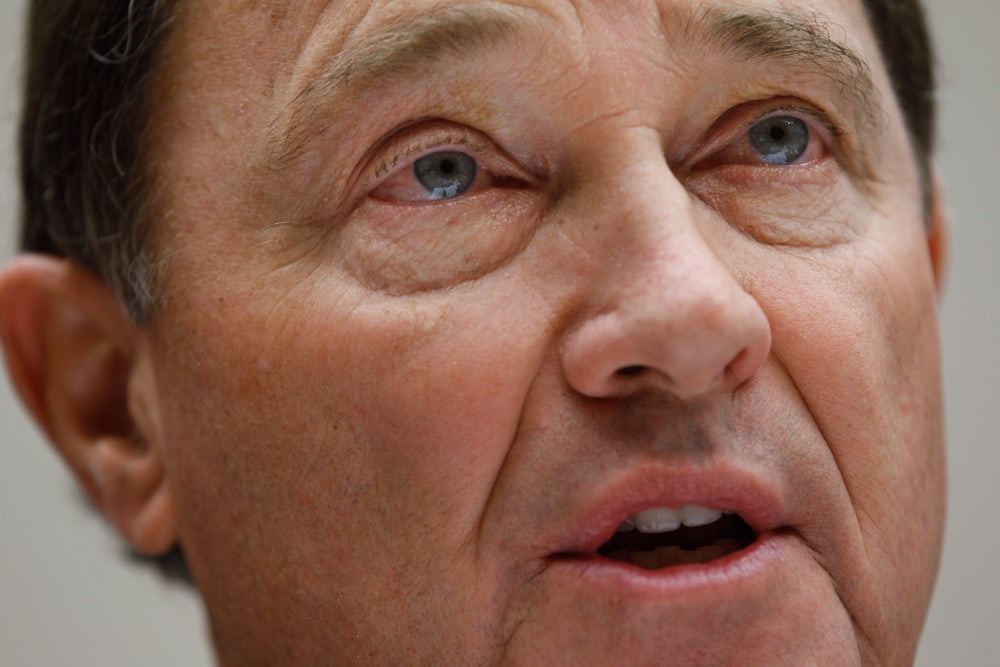Civil liberties and voting rights advocates sounded the alarm earlier this week after President Donald Trump’s Presidential Advisory Commission on Election Integrity—which is meant to address the non-existent problem of mass voter fraud—wrote to all 50 states “requesting their full voter-roll data, including the name, address, date of birth, party affiliation, last four Social Security number digits and voting history back to 2006 of potentially every voter in the state,” according to The Washington Post. Now a growing bipartisan group of governors is pushing back.
Utah Governor Gary Herbert and Lieutenant Governor Spencer Cox—both Republicans—announced on Friday that their state won’t hand over private voter data, including driver’s license and Social Security numbers, to the commission. “While my office is required to provide public records to this Commission, as we would to any other person or entity,” Cox said in a statement, “I assure the voters of Utah that we will only provide information that is otherwise available to the public.” He stressed, “There has been no evidence of mass voter fraud in Utah.”
Democratic state officials are, of course, resisting demands from Trump’s panel, widely seen as a pretext for voter suppression. (“At best this commission was set up as a pretext to validate Trump’s alternative election facts, and at worst is a tool to commit large-scale voter suppression,” Virginia Governor Terry McAuliffe said in his statement.) But Utah isn’t the only red state pushing back. Oklahoma officials also said they won’t release partial Social Security numbers to the federal government.
The bipartisan backlash on voter fraud coincides with a series of GOP governors joining Democrats in opposing Senate Republicans’ health care bill. As The Hill reported on Thursday, New Hampshire’s Chris Sununu joined Nevada’s Brian Sandoval, Ohio’s John Kasich, and Arizona’s Doug Ducey in voicing concern over the legislation’s cuts to Medicaid. Trump is desperate for a “win” in his beleaguered young presidency, but headed into the July 4 weekend, his own party increasingly is declaring independence from him.
